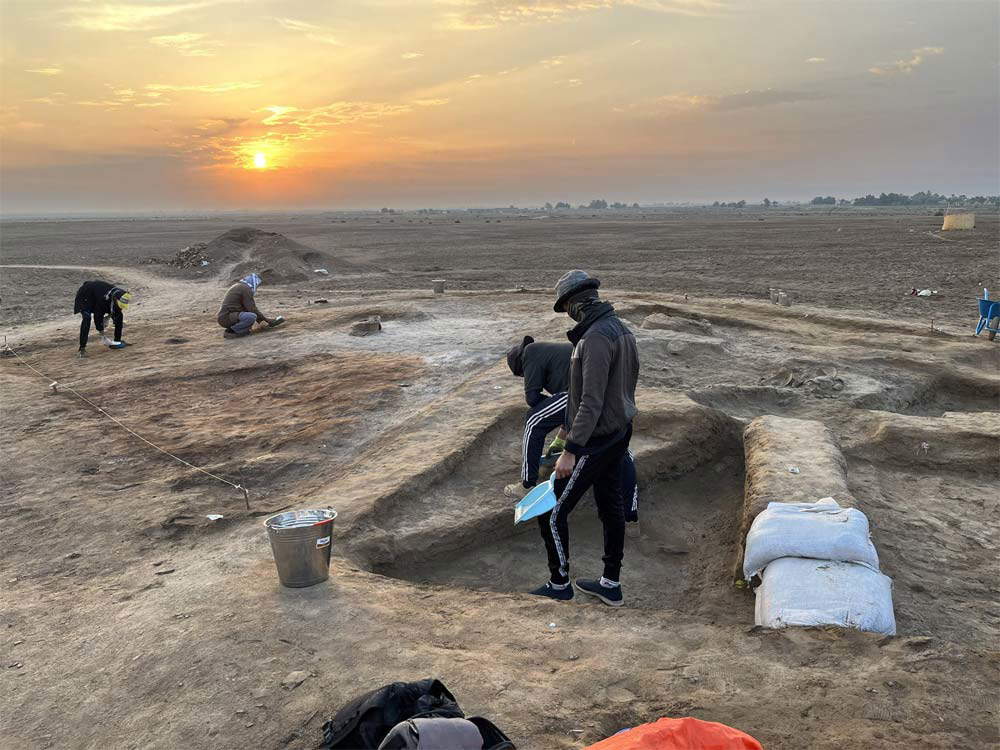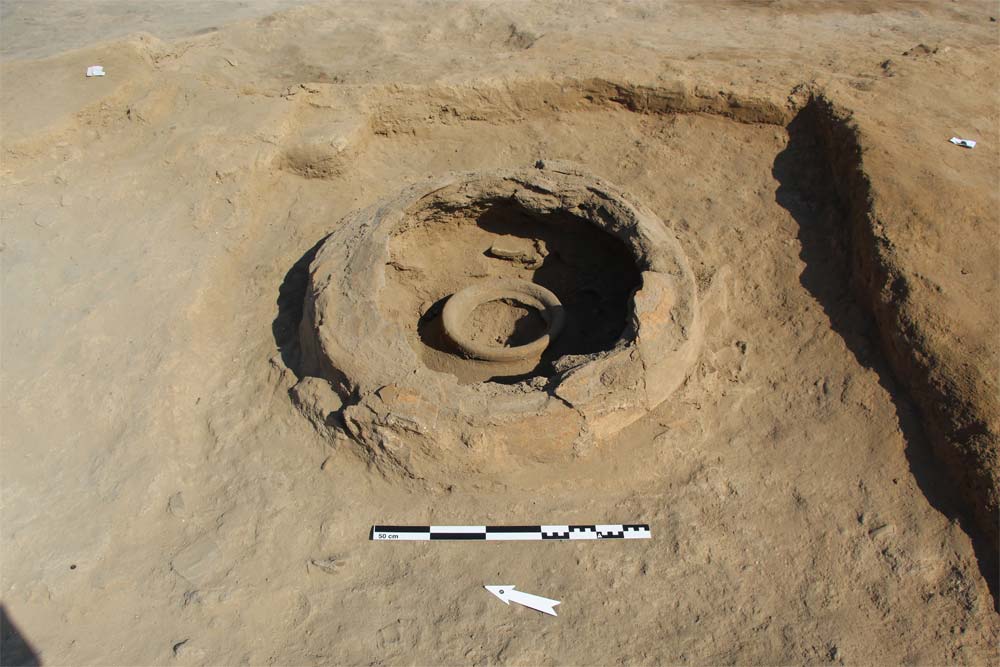Curious find in Iraq by archaeologists from theUniversity of Pisa engaged, with their American colleagues from the University of Pennsylvania, in excavations by the Lagash Archaeological Project that, in late 2022, unearthed what may have been a tavern from 2,700 B.C. In fact, an outdoor dining area with benches, an oven, storage containers, ancient food remains and even a 5,000-year-old refrigerator. It is a "zeer,“ an Arabic term for the ”jar within a jar" technique of preserving drinks and food.
The object found by the team led by Professor Holly Pittman of the University of Pennsylvania and Professor Sara Pizzimenti of the Department of Department of Civilizations and Forms of Knowledge at the University of Pisa, was hidden just 50 cm from the surface and today delivers us a glimpse of what must have been daily life in one of the most important city-states of Mesopotamia, namely Tell al-Hiba, ancient Lagash. Tell al-Hiba is located 24 kilometers east of the city of Shatra, in the Dhi Qar governorate of southern Iraq. Covering more than 400 hectares, ancient Lagash is one of the oldest and largest city-states in southern Mesopotamia and the capital of the state of the same name. Occupied since the fifth millennium B.C.E. and largely abandoned around 2,300 B.C.E., it was one of the region’s most important trading hubs, home to an intense and varied craft production, and with immediate access to agricultural land.


“The find made at Lagash is able to shed new light on the study of the food and cuisine of ancient Mesopotamia, so far mainly known and explored through texts, which, however, do not cover the earliest periods of Sumer,” explains Sara Pizzimenti, Associate Professor of Ancient Near Eastern Archaeology and Art History at the University of Pisa. “Within what was a public place for the production, distribution and consumption of meals, which was likely to have taken place within the large courtyard with banquettes, a hundred bowls containing food remains were in fact found, along with devices for storing drinks and food. The Lagash ’tavern’ is consequently an important building block for reconstructing knowledge in the field of food production and distribution, an economy underlying the earliest complex societies in human history.”
Until the Lagash Archaeological Project, which began in 2019, excavations had always focused on religious architecture and understanding elites. With the new project, however, archaeologists’ focus has been on the non-elite areas of the city, so they can learn more about what daily life was like in the ancient Mesopotamian city. The discovery of the tavern thus sheds new light on the life of a popular Sumerian neighborhood probably related to pottery-making crafts.
The first archaeological explorations at Tell al-Hiba date back to the late 19th century (1887), but it was not until 1953, thanks to the discovery of an inscription by Danish Assyriologist Thorkild Jacobnsen and Fuad Safar, that the site was able to be identified with ancient Lagash. The city was first intensively investigated through the five excavation campaigns (1968-1976) of a joint project of the Metropolitan Museum of Art and the Institute of Fine Arts, New York, under the direction of Donald Hansen. Two more campaigns followed, in 1984 (UCLA) and 1990 (UPENN), the latter interrupted by the outbreak of the first Gulf War. Research did not resume until spring 2019, with an initial joint project between the University of Pennsylvania and Cambridge, followed by a second campaign in November 2021. But it is from the third campaign, which began in March 2022, that the University of Pisa also entered the scene with a team of archaeologists led by Professor Sara Pizzimenti, who, in the fourth season of excavations (fall 2022), became field irector and led to the discovery of what is presumed to be an ancient tavern.
 |
| Iraq, University of Pisa archaeologists discover ... a 5,000-year-old refrigerator |
Warning: the translation into English of the original Italian article was created using automatic tools. We undertake to review all articles, but we do not guarantee the total absence of inaccuracies in the translation due to the program. You can find the original by clicking on the ITA button. If you find any mistake,please contact us.